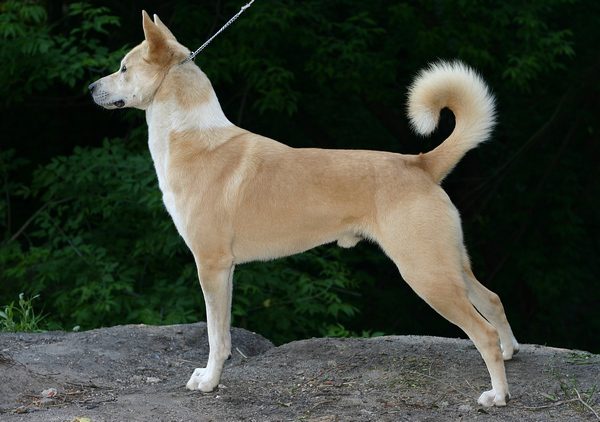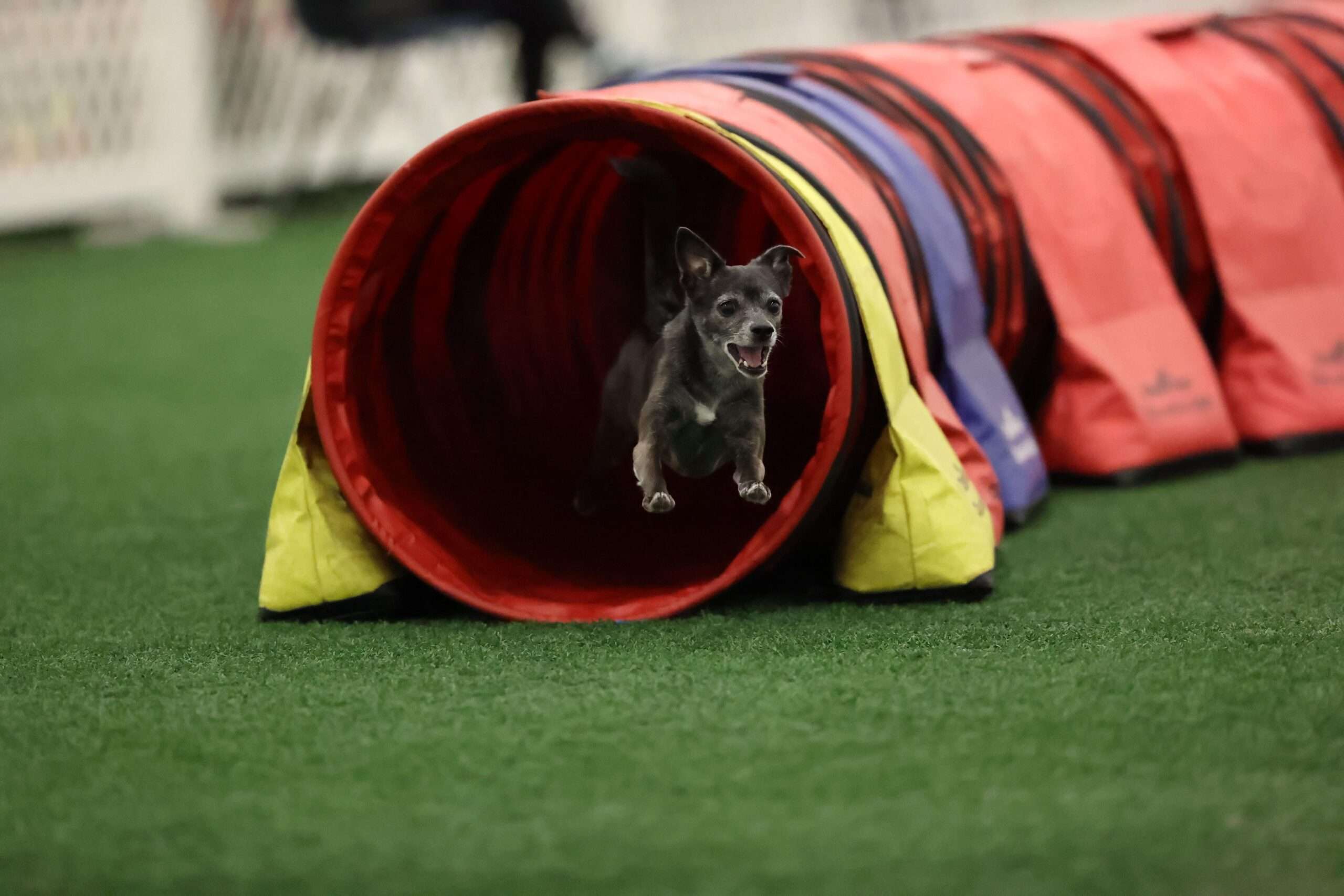Key Takeaways:
- The German Pinscher is a medium-sized dog breed known for its intelligence, agility, and alertness.
- They have a short coat that requires minimal grooming, but they shed moderately throughout the year.
- This breed is highly active and requires regular exercise to prevent boredom and destructive behavior.
- German Pinschers are loyal and protective of their families, making them excellent watchdogs.
- Proper socialization and training from an early age are essential to ensure they get along well with other pets and children.
Are you a dog lover looking to expand your knowledge on different breeds? If so, you're in for a treat! Today, we'll be diving into the fascinating world of German Pinschers. These adorable canines are not only incredibly lovable but also possess unique characteristics that set them apart from other breeds. Understanding the ins and outs of caring for a German Pinscher can greatly enhance your experience as a pet owner. Plus, did you know that these furry friends have been known to improve their owners' overall well-being? So, whether you're considering getting a German Pinscher or simply curious about this delightful breed, stick around as we explore their traits, needs, and the joys they bring into our lives. Get ready to embark on an exciting journey filled with wagging tails and unconditional love!
Unique Characteristics of the German Pinscher Breed
The German Pinscher is a medium-sized dog known for its sleek and elegant appearance. It has a short, dense coat that comes in various colors such as black, red, or blue. One unique characteristic of the German Pinscher is its well-defined muscles, giving it a strong and athletic build.
This breed also has a distinctive head shape with a pronounced stop and a slightly arched forehead. Their eyes are medium-sized and dark, which gives them an alert and intelligent expression. German Pinschers have small, triangular-shaped ears that stand erect on their head.
Physical Appearance
The German Pinscher stands about 17 to 20 inches tall at the shoulder and weighs between 25 to 45 pounds. Its body is well-proportioned with a deep chest and a straight back. The tail of a German Pinscher is usually docked to about one-third of its original length.
In terms of grooming, this breed is relatively low-maintenance. Their short coat only requires regular brushing to keep it clean and free from loose hair. They shed moderately throughout the year, so occasional baths may be necessary to keep them smelling fresh.
The Temperament of a German Pinscher: Friendly and Energetic
The German Pinscher is known for its friendly and energetic temperament. They are highly intelligent dogs that thrive on mental stimulation and physical activity. This breed is often described as confident, assertive, and independent-minded.
German Pinschers are loyal companions who form strong bonds with their owners. They are generally good with children but may not tolerate rough play or teasing. Early socialization is important to ensure they get along well with other pets in the household.
Exercise Needs
Due to their high energy levels, German Pinschers require regular exercise to keep them happy and healthy. Daily walks, playtime in a secure yard, or engaging in canine sports such as agility or obedience training can help fulfill their exercise needs.
It's important to note that German Pinschers have a strong prey drive and may chase small animals. Therefore, it's essential to keep them on a leash or in a securely fenced area when outside the home.
Caring for a Healthy and Happy German Pinscher
To ensure the health and happiness of your German Pinscher, proper care is essential. This includes providing them with a balanced diet suitable for their age and activity level. High-quality dog food that meets their nutritional needs is recommended.
In addition to regular exercise, mental stimulation is crucial for this breed. They are intelligent dogs that thrive on learning new tasks and solving puzzles. Interactive toys and training sessions can help keep their minds sharp and prevent boredom.
Grooming Tips
- Brush your German Pinscher's coat regularly to remove loose hair and prevent matting.
- Trim their nails regularly to prevent overgrowth, which can be uncomfortable for them.
- Clean their ears regularly to prevent infections. Use a damp cloth or cotton ball to gently wipe the outer part of the ear.
- Regularly check their teeth and gums for any signs of dental issues. Brushing their teeth several times a week is recommended.
How Much Exercise Does a German Pinscher Need?
The German Pinscher is an active breed that requires plenty of exercise to stay happy and healthy. They have high energy levels and enjoy activities that challenge both their mind and body. On average, a German Pinscher needs at least 60 minutes of exercise each day.
This breed enjoys various forms of exercise, including brisk walks, jogging, playing fetch, or participating in dog sports such as agility or obedience training. Mental stimulation is also important for their overall well-being. Puzzle toys, training sessions, and interactive games can help keep their minds sharp.
Exercise Ideas
- Take your German Pinscher for a long walk or hike in the park.
- Engage them in active play sessions with toys such as balls or frisbees.
- Enroll them in agility classes to provide both physical and mental challenges.
- Teach them new tricks or commands to keep their minds engaged.
German Pinschers: Good with Children and Other Pets?
The German Pinscher can be good with children and other pets if properly socialized from an early age. They are generally friendly and affectionate towards their family members. However, due to their assertive nature, supervision is recommended when they interact with young children to prevent any rough play that may lead to accidents.
If introduced to other pets at a young age, German Pinschers can get along well with them. However, caution should be exercised around small animals such as cats or rodents due to their strong prey drive. Early socialization and proper introductions are key to ensuring harmonious relationships between a German Pinscher and other household pets.
Common Health Issues in German Pinschers
Like all breeds, German Pinschers are prone to certain health issues that potential owners should be aware of. While not all individuals will experience these conditions, it's important to consider them when choosing a breed:
Common Health Issues:
- Hip Dysplasia: This is a genetic condition where the hip joint doesn't develop properly, leading to pain and mobility issues.
- Dilated Cardiomyopathy: A heart condition that affects the heart's ability to pump blood efficiently.
- Von Willebrand's Disease: A bleeding disorder that affects the dog's ability to clot blood properly.
Regular veterinary check-ups, a balanced diet, and maintaining a healthy weight can help minimize the risk of these health issues. Responsible breeders also conduct health screenings on their breeding dogs to ensure they are not passing on any genetic conditions.
Tips for Training and Socializing a German Pinscher Puppy
Training and socialization are crucial for German Pinscher puppies to grow into well-behaved and balanced adults. Early training should focus on basic obedience commands such as sit, stay, come, and walking on a leash.
Socialization involves exposing your puppy to various people, animals, sounds, and environments in a positive manner. This helps them become confident and adaptable adult dogs. Introduce them gradually to new experiences while rewarding calm and relaxed behavior.
Training Tips:
- Use positive reinforcement techniques such as treats or praise to reward desired behaviors.
- Keep training sessions short and fun to maintain your puppy's attention span.
- Be consistent with your commands and expectations to avoid confusion.
- Enroll in puppy classes or seek guidance from a professional dog trainer if needed.
Remember that patience, consistency, and positive reinforcement are key when training a German Pinscher puppy. With proper training and socialization, they can grow up to be well-mannered and obedient companions.
In conclusion, the German Pinscher is a lively and intelligent dog breed that requires regular exercise, mental stimulation, and proper care. With their loyal and protective nature, they make great companions for active families who are committed to meeting their needs.
Is a German Pinscher a good family dog?
The German Pinscher is a breed known for its high energy and strong work drive, but they are also excellent companions. They enjoy being with their family and will become an integral part of your life.
Can German pinschers be left alone?
German Pinschers are capable of being alone for a few hours each day, but they have a preference for being with their owners. If they cannot accompany you on an outing, it is best to keep them in a dog-proofed space or a crate.
What is the temperament of a German Pinscher even tempered?
Temperament. This breed of animal is energetic and highly attentive. They have a natural instinct to protect and are very aware of their surroundings. They are always alert and ready to take action. Unfortunately, due to some dogs being quick to snap, they have developed a reputation for being aggressive.
Are Pinschers cuddly?
Despite being a difficult breed, the Min Pin is loyal to its family and can be a loving and affectionate option for someone who has the time to invest in training. Another name for the Miniature Pinscher is Min Pin.
Are German Pinscher easy to train?
German Pinschers are highly trainable and excel in various canine activities. They thrive on working alongside their owners and are known for their problem-solving abilities and fast learning.
Do German pinschers bond to one person?
Once you have gained the German pinscher's trust and loyalty, you will have a lifelong bond with your new companion. However, it takes time and effort to properly train and connect with these dogs, and as a result, they can be a bit reserved and cautious around unfamiliar people and other dogs.
















